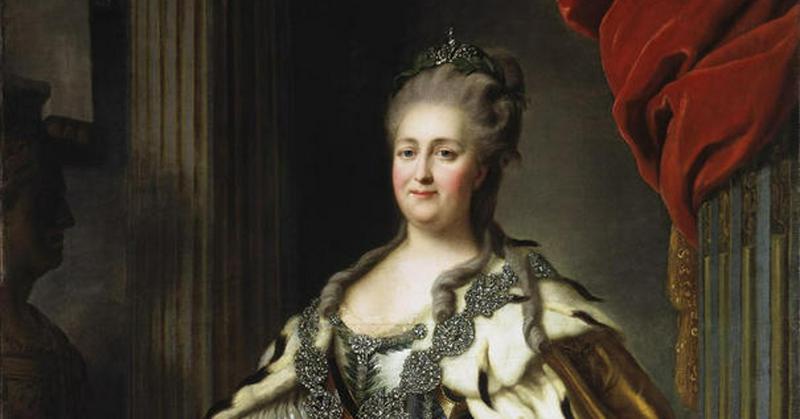Catherine The Great: Biography, Stories, And Trivia About The Great
By | November 27, 2021

Catherine the Great, the last reigning empress of Russia, brought Russia into the modern world and solidified its status as a major European power during the 18th century. Originally from Pomerania (modern-day Poland), she was born on May 2, 1729 as Princess Sophie of Anhalt-Zerbst, daughter of minor German prince Christian August. Despite their titles, there wasn't much money in being a minor prince during those days, so like many young nobles, Catherine was married off at the age of only 16 to Peter III of Russia, a major step up for her.
Peter III did not shine as bright as his grandfather, Peter the Great, who had governed Russia under a strong military rule, and was often abused and humiliated as a child by his tutors. Given his poor upbringing, it's no wonder that Peter had little will to dedicate himself to ruling Russia and made close to zero effort to endear himself to his people. Catherine, however, fell quickly in love with this new and mysterious land and almost immediately began studying Russian. Within a remarkably short time, she managed to woo the court to her favor despite not having any Russian heritage herself.

Catherine's popularity rubbed Peter the wrong way, and he eventually began avoiding her, instead spending his time drinking and playing games. That made it really hard for Catherine to produce an heir, which at the time was sort of her main job. She finally gave birth to presumably Peter's son (although she was known to have many other lovers) in 1954, so with that task out of the way, she used her time recovering from the difficult birth to read authors like Voltaire and became enraptured with the ideals of Enlightenment.
By the 1760s, Peter had given up any pretense of caring about Russia or Catherine. He disagreed with his army leaders about their efforts in the Seven Years' War, openly showered his new mistress with affection, and threatened Catherine in public. Things got worse in 1762, after Peter finally became emperor. He spent much of his time humiliating Catherine, breaking up the Orthodox Church's property, and demeaning his own army. One of Catherine's lovers, however, happened to be Grigory Orlov, a military man who suggested he could get the army's backing if she ever wanted to overthrow the childish and malicious Peter.

Catherine gave Orlov the thumbs-up, and together, they pulled off a successful coup d'etat which gave Peter no choice but to abdicate his throne and pass the crown over to his wife after a measly six-month rule. He stayed under house arrest for eight days until he mysteriously turned up dead. To this day, historians how no clear account of what happened, but theories range from a convenient health condition to Orlov ordering a hit job once the official business of abdication was handled.
The new empress worked quickly. After all, you don't get a name like "The Great" by dragging your feet. She passed widespread reform that she hoped would usher Russia into the Age of Enlightenment, brought the concept of the presumption of innocence to the judicial system, made widespread educational reforms, and even freed the serfs. She successfully transformed the economy and set up trade routes, fought off Ottoman threats, and encouraged the arts, leaving behind a cultural legacy which is still revered in Russia and abroad. She died from a stroke on November 16, 1792 after three decades as Empress and was buried at the Saints Peter and Paul Cathedral in St. Petersburg, Russia.

